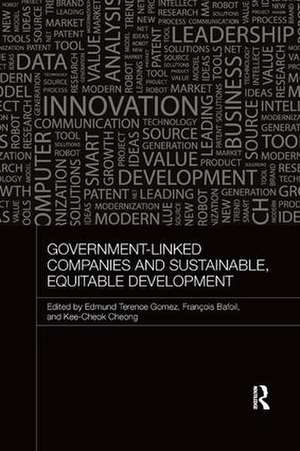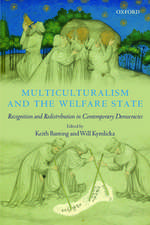Government-Linked Companies and Sustainable, Equitable Development: Routledge Malaysian Studies Series
Editat de Terence Gomez, François Bafoil, Kee-Cheok Cheongen Limba Engleză Paperback – 12 oct 2017
| Toate formatele și edițiile | Preț | Express |
|---|---|---|
| Paperback (1) | 449.41 lei 6-8 săpt. | |
| Taylor & Francis – 12 oct 2017 | 449.41 lei 6-8 săpt. | |
| Hardback (1) | 1053.16 lei 6-8 săpt. | |
| Taylor & Francis – 3 dec 2014 | 1053.16 lei 6-8 săpt. |
Din seria Routledge Malaysian Studies Series
-
 Preț: 402.98 lei
Preț: 402.98 lei -
 Preț: 410.16 lei
Preț: 410.16 lei -
 Preț: 416.96 lei
Preț: 416.96 lei -
 Preț: 489.99 lei
Preț: 489.99 lei -
 Preț: 416.96 lei
Preț: 416.96 lei - 11%
 Preț: 304.68 lei
Preț: 304.68 lei -
 Preț: 448.12 lei
Preț: 448.12 lei - 13%
 Preț: 336.43 lei
Preț: 336.43 lei -
 Preț: 413.13 lei
Preț: 413.13 lei -
 Preț: 396.91 lei
Preț: 396.91 lei -
 Preț: 416.96 lei
Preț: 416.96 lei -
 Preț: 434.32 lei
Preț: 434.32 lei -
 Preț: 436.14 lei
Preț: 436.14 lei -
 Preț: 416.22 lei
Preț: 416.22 lei - 17%
 Preț: 270.20 lei
Preț: 270.20 lei -
 Preț: 389.38 lei
Preț: 389.38 lei -
 Preț: 379.86 lei
Preț: 379.86 lei -
 Preț: 402.13 lei
Preț: 402.13 lei - 18%
 Preț: 1330.94 lei
Preț: 1330.94 lei - 17%
 Preț: 245.56 lei
Preț: 245.56 lei
Preț: 449.41 lei
Nou
Puncte Express: 674
Preț estimativ în valută:
86.00€ • 89.68$ • 71.48£
86.00€ • 89.68$ • 71.48£
Carte tipărită la comandă
Livrare economică 20 martie-03 aprilie
Preluare comenzi: 021 569.72.76
Specificații
ISBN-13: 9781138578098
ISBN-10: 1138578096
Pagini: 198
Ilustrații: 26
Dimensiuni: 156 x 234 x 11 mm
Greutate: 0.45 kg
Ediția:1
Editura: Taylor & Francis
Colecția Routledge
Seria Routledge Malaysian Studies Series
Locul publicării:Oxford, United Kingdom
ISBN-10: 1138578096
Pagini: 198
Ilustrații: 26
Dimensiuni: 156 x 234 x 11 mm
Greutate: 0.45 kg
Ediția:1
Editura: Taylor & Francis
Colecția Routledge
Seria Routledge Malaysian Studies Series
Locul publicării:Oxford, United Kingdom
Public țintă
Postgraduate and UndergraduateCuprins
Introduction 1. Economic Liberalization and the Performance of Public Sector Enterprises in India 2. The Chinese State, State Enterprises, and the Global Crisis 3. The Creative Role of the State and Entrepreneurship: The Case of Taiwan 4. South Korea: GLCs as Agents of Economic Development 5. The State’s Business: Government-Linked Companies, the Financial Sector, and Socioeconomic Development in Malaysia 6. Poland: A Systemic Transforming Process From State-Planned to Liberal Economy 7. Internationalization and a Competitiveness Agenda: Development Banks and Agencies Responses to the Financial Crisis in Brazil and Chile
Descriere
The debate over how far governments should intervene in economies in order to promote economic growth has taken on new vigour since the financial crisis of 2008. Many countries, many of them in Asia, have secured good economic growth after the crisis by adopting a developmental state model, with governments intervening in their economies, often supporting specific companies. This book explores debates about government intervention, assesses interventionist policies and examines the key institutions which play a crucial role in implementing government policies and building bridges between state and private sector. Countries covered include China, India, South Korea, Malaysia and Taiwan.














